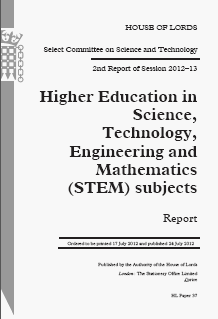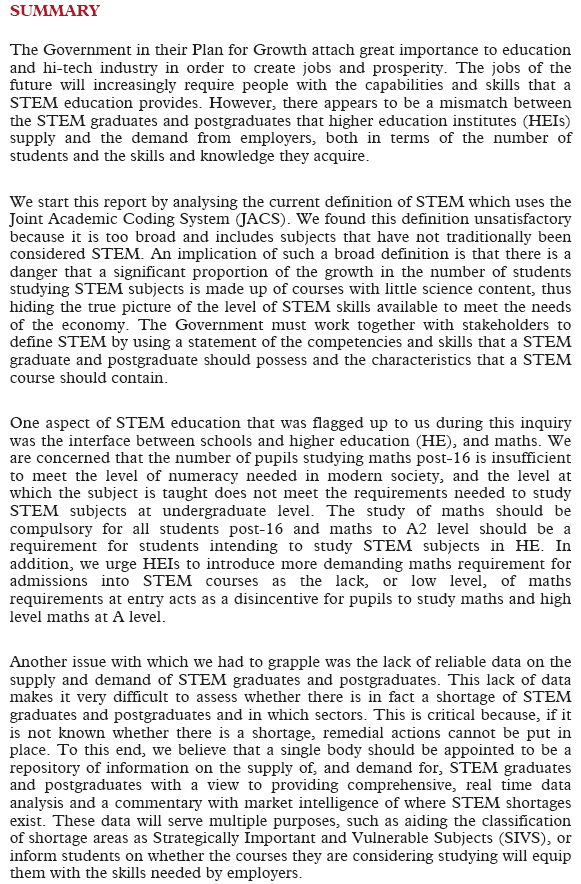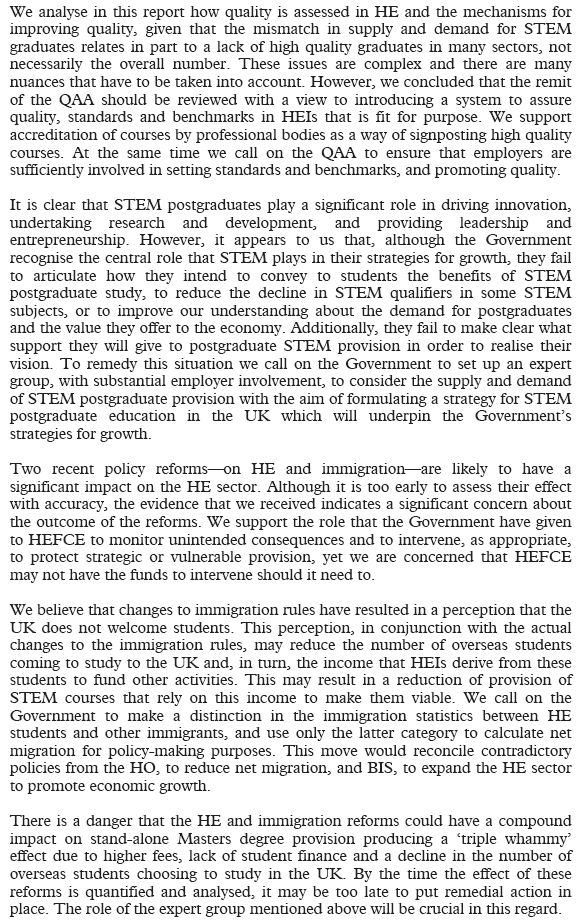|
News & Views item - July 2012 |
![]() UK House of Lords Reports on Higher Education in Science, Technology,
Engineering and Mathematics (STEM) Subjects. (July 30, 2012)
UK House of Lords Reports on Higher Education in Science, Technology,
Engineering and Mathematics (STEM) Subjects. (July 30, 2012)
 The
Science and Technology Committee of Britain's House of Lords published on July
24 a new report looking at how to encourage young people to study science,
technology, engineering and maths (STEM) subjects at university undergraduate
and postgraduate levels.
The
Science and Technology Committee of Britain's House of Lords published on July
24 a new report looking at how to encourage young people to study science,
technology, engineering and maths (STEM) subjects at university undergraduate
and postgraduate levels.
The report calls for "immediate action to ensure enough young people study Science, Technology, Engineering and Maths (STEM) subjects at both undergraduate and postgraduate level. Without this the Government risks failing to meet its objectives to drive economic growth through education and hi-tech industries as identified in its Plan for Growth".
Included in the 11 person sub-committee which carried out the inquiry were
Martin Rees, John Krebs and and Robert Winston. The full 117 page report is
available
here![]() .
.
Many of the assessments in the report would seem appropriate to the problems facing Australia in integrating STEM subjects K-12 to university and the commonweal.
The most incisive observations made in the report:
It is clear that STEM postgraduates play a significant role in driving innovation, undertaking research and development, and providing leadership and entrepreneurship. However, it appears to us that, although the Government recognise the central role that STEM plays in their strategies for growth, they fail to articulate how they intend to convey to students the benefits of STEM postgraduate study, to reduce the decline in STEM qualifiers in some STEM subjects, or to improve our understanding about the demand for postgraduates and the value they offer to the economy. Additionally, they fail to make clear what support they will give to postgraduate STEM provision in order to realise their vision. To remedy this situation we call on the Government to set up an expert group, with substantial employer involvement, to consider the supply and demand of STEM postgraduate provision with the aim of formulating a strategy for STEM postgraduate education in the UK which will underpin the Government’s strategies for growth.
The report also laid emphasis on:
One aspect of STEM education that was flagged up to us during this inquiry was the interface between schools and higher education (HE), and maths. We are concerned that the number of pupils studying maths post-16 is insufficient to meet the level of numeracy needed in modern society, and the level at which the subject is taught does not meet the requirements needed to study STEM subjects at undergraduate level. The study of maths should be compulsory for all students post-16 and maths to A2 level should be a requirement for students intending to study STEM subjects in HE.
Below we reprint the report's summary in full.
______________________________________________________________________

